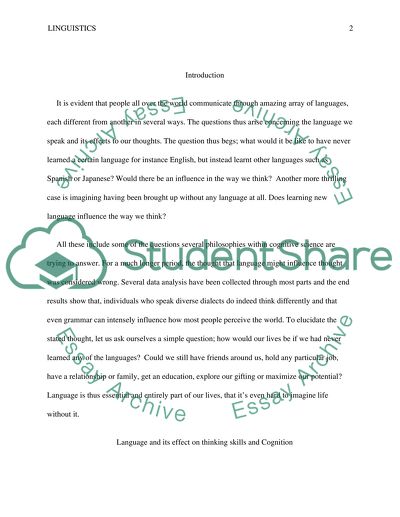Cite this document
(“Does language influence thinking skills or cognition Essay”, n.d.)
Does language influence thinking skills or cognition Essay. Retrieved from https://studentshare.org/humanitarian/1688517-does-language-influence-thinking-skills-or-cognition
Does language influence thinking skills or cognition Essay. Retrieved from https://studentshare.org/humanitarian/1688517-does-language-influence-thinking-skills-or-cognition
(Does Language Influence Thinking Skills or Cognition Essay)
Does Language Influence Thinking Skills or Cognition Essay. https://studentshare.org/humanitarian/1688517-does-language-influence-thinking-skills-or-cognition.
Does Language Influence Thinking Skills or Cognition Essay. https://studentshare.org/humanitarian/1688517-does-language-influence-thinking-skills-or-cognition.
“Does Language Influence Thinking Skills or Cognition Essay”, n.d. https://studentshare.org/humanitarian/1688517-does-language-influence-thinking-skills-or-cognition.


